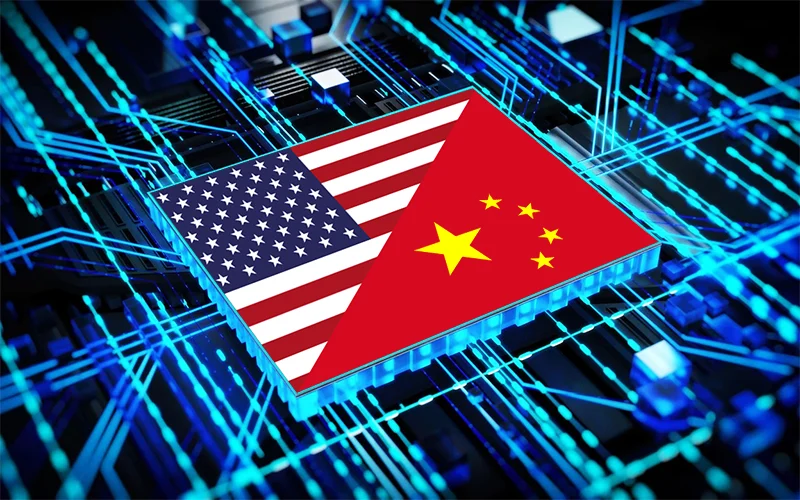Tech giants caught in the crossfire as China launches antitrust probe and trade sanctions. The US-China trade war is reaching new levels of intensity. In response to recent US tariffs, Beijing has imposed countermeasures, including new duties on American imports and sanctions on the biotech sector, marking a pivotal shift in the ongoing economic conflict.
China Strikes Back with Google Antitrust Probe
In a significant move, China has initiated an antitrust investigation into Google, focusing on potential violations related to its Android operating system. This probe is widely seen as a direct retaliation against recent U.S. trade actions, with Beijing demonstrating its willingness to challenge American tech giants operating within its borders. The scrutiny over Google’s dominance in China could set a precedent for further regulatory crackdowns on other U.S. tech firms.
Apple Faces Growing Uncertainty in China
Alongside Google, Apple has also found itself in Beijing’s crosshairs. Reports indicate that China is considering stricter regulations on Apple’s supply chain and operations, a move that could disrupt the tech giant’s massive manufacturing base in the country. As tensions mount, Apple’s market position in China—one of its largest revenue sources—faces growing uncertainty, with potential ripple effects on its global supply chain.
China Expands Trade Sanctions on Key US Sectors
China has imposed new tariffs ranging from 10% to 15% on select American imports, including coal, liquefied natural gas, crude oil, agricultural machinery, and large-engine vehicles. These tariffs, set to take effect on February 10, come in direct response to U.S. trade restrictions. Additionally, China has placed export controls on critical minerals essential for high-tech products, further tightening its grip on industries dependent on Chinese resources.
Beijing Hits US Biotech Industry with Counter-Sanctions
Marking a significant shift in strategy, China has also imposed sanctions on the U.S. biotech industry. The inclusion of Illumina, a leading American genomic sequencing firm, on China’s “unreliable entity” list is a first-of-its-kind move, highlighting Beijing’s intent to disrupt U.S. dominance in biotechnology. Analysts see this as part of a broader effort by China to build self-sufficiency in high-tech sectors and reduce reliance on American firms.
A Deepening Economic Divide
These developments occur against a backdrop of heightened trade tensions, with the U.S. having imposed nearly $80 billion in new tariffs on Chinese products in recent years. While the Biden administration has largely maintained these tariffs, recent actions from former President Trump have further intensified hostilities. The ongoing tit-for-tat measures underscore the complexities of U.S.-China economic relations and raise concerns about long-term disruptions to global trade.
As the tech war deepens and both nations continue to escalate their trade battle, the global economic landscape remains fraught with uncertainty. With Google and Apple now squarely in Beijing’s sights, the next phase of the U.S.-China conflict is set to have far-reaching consequences for international markets and technological innovation.






